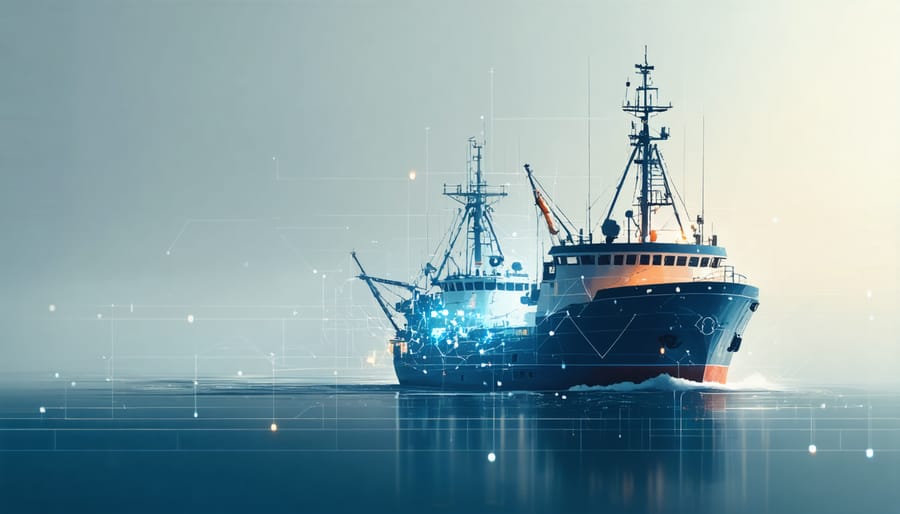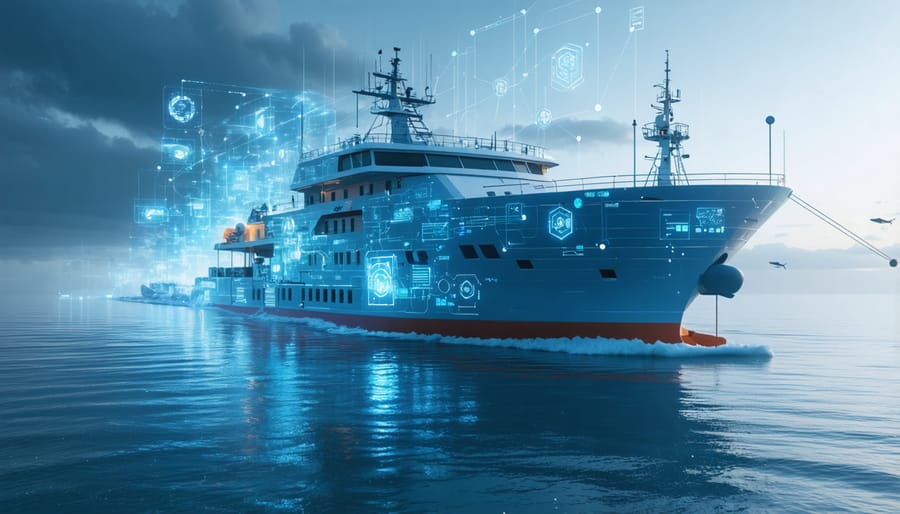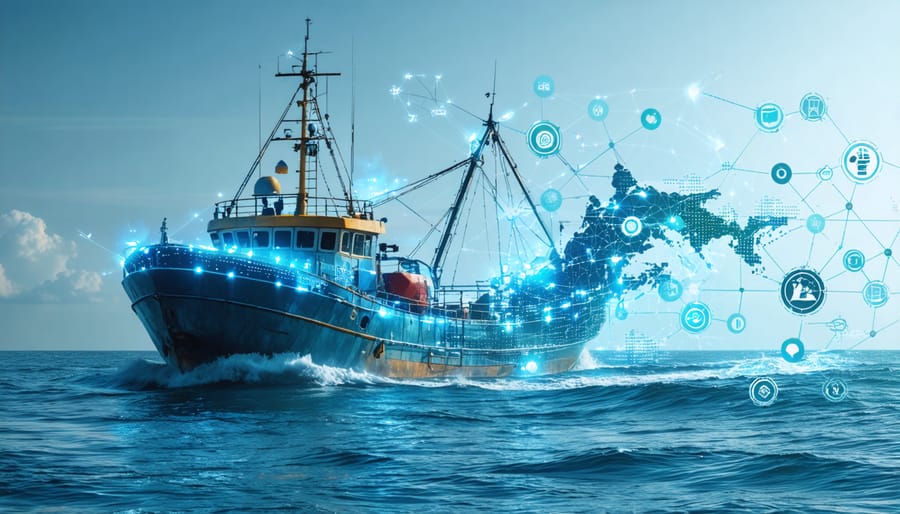In Oman, where fishing is not just an industry but a way of life, ensuring fair, sustainable, and transparent fisheries management is essential. Blockchain technology presents an inspiring opportunity. By humanising the story and focusing on the people it benefits fisher folk, regulators, consumers, communities we can imagine how blockchain paves the way for an empowered and trustworthy fisheries future.
What is Blockchain and Why It Matters for Fisheries
Blockchain is a digital ledger technology that records transactions in a secure, immutable way. Every step of seafood from catch to plate is traceable, tamper proof, and visible to all authorized stakeholders. This transparency builds trust, reduces fraud, and enhances efficiency in fisheries management.
Empowering Local Fisherfolk
Imagine a fisherman in Muscat or Salalah. With blockchain, his catch is logged in real time where, when, how. Buyers, regulators, and consumers see verified information. That means fair pricing, reduced disputes, and recognition for responsible practices. Technology becomes a tool to support dignity and livelihood.
Strengthening Regulatory Oversight
For Omani fisheries authorities, blockchain equips regulators with reliable, audit able data. Illegal fishing, quota overuse, and mislabelling become easier to monitor. Automated alerts can flag anomalies say, if a vessel fishes in a protected zone. This helps enforcement become smarter, not harsher, and brings efficiency to sustainable policy execution.

Protecting Marine Ecosystems
Blockchain’s transparency supports sustainable fishing limits. It enables real time aggregation of catch volumes across regions and species. When data shows over fishing or ecosystem stress, immediate adjustments can be made to quotas or fishing patterns. This proactive approach helps safeguard Oman’s rich marine biodiversity for future generations.
Building Consumer Trust and Market Value
Consumers increasingly demand responsible seafood choices. With blockchain, shoppers in Omani markets or restaurants can scan a QR code and verify exactly where their fish came from, who caught it, and under what conditions. This fosters trust and allows premium pricing for traceable, sustainable seafood, giving fishermen more income and reputation.
Enhancing Export Reputation
Oman exports seafood globally. International buyers expect documentation, authenticity, and sustainability credentials. Blockchain generated traceability records elevate Oman’s seafood reputation and open doors to high value markets, boosting economic returns and signalling Omani commitment to global standards.
Encouraging Collaboration Along the Value Chain
From fishermen to processors to distributors to regulators, everyone benefits from a shared, transparent ledger. Communication barriers break down. Joint decisions such as establishing community based no fishing zones become informed and equitable. Blockchain fosters unity by helping diverse groups work toward shared sustainability goals.
Tackling Challenges and Realizing Human Centered Implementation
It’s not just about tech this shift hinges on people. Training fisher folk in safe, accessible digital tools, ensuring affordable devices, and delivering user friendly mobile apps are key. Communities must be involved from the start, co designing workflows. GDPR style approaches ensure data privacy and respect for local customs. Human centred deployment means everyone feels ownership, not surveillance.

What Success Looks Like in Oman
In an ideal future, fishermen effortlessly log catches via mobile tablets regulators monitor fish stocks in real time markets and restaurants display QR codes seafood exports fly off the shelves with sustainable credentials coastal communities thrive with fair income. Marine species recover, and trust flows from sea to consumer. That’s transparency in action powered by blockchain.
Scaling for Lasting Impact
Rolling out such technology requires pilot programs perhaps beginning in Mirbat or Qurayyat testing apps, gathering feedback, refining interfaces. Learning hubs can train local trainers. Partnerships between Oman’s fisheries ministry, universities, tech start ups, and coastal cooperatives can build momentum. Over time, the system can expand nationwide and integrate additional features AI based fish stock prediction, dynamic quota adjustment, community led conservation zones.
Human Stories That Define Progress
Picture Fatima, a mother in a coastal fishing village, using a smartphone to track her family’s catch and sell it directly to a halal seafood buyer in Dubai earning more and gaining pride in sustainable practices. Or Saeed, a regulator who reviews dashboards daily to spot any vessel fishing illegally intervening early and preserving habitat. Blockchain becomes more than code it becomes shared purpose, livelihoods, and trust at human scale.
Conclusion
Blockchain for transparent fisheries management is not just a technical upgrade it is a human story of trust, empowerment, sustainability, and prosperity. In Oman, this technology has the potential to transform how communities connect to their seas, how regulators protect vital ecosystems, and how consumers choose seafood. With thoughtful, people centered implementation, blockchain could usher in a golden age of transparent, responsible fisheries benefiting every link in the chain and securing Oman’s coastal heritage for generations to come.
Do follow Gulf Magazine on Instagram.
Also Read – AI in Risk Management Empowering Oman’s Financial Institutions for a Safer Future



